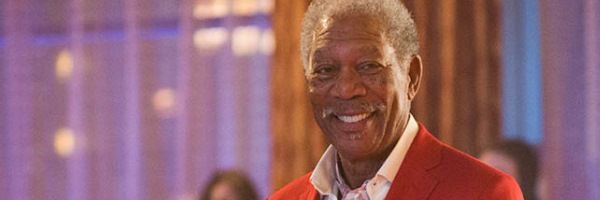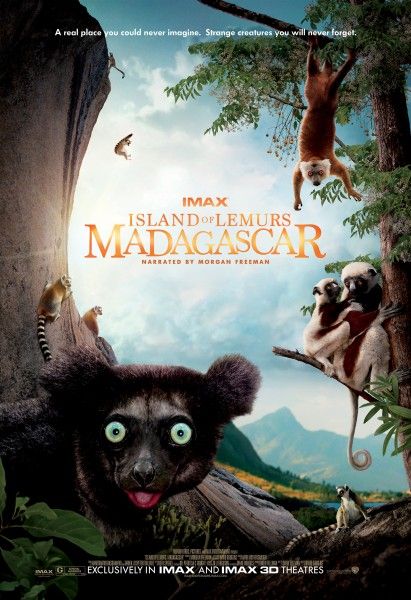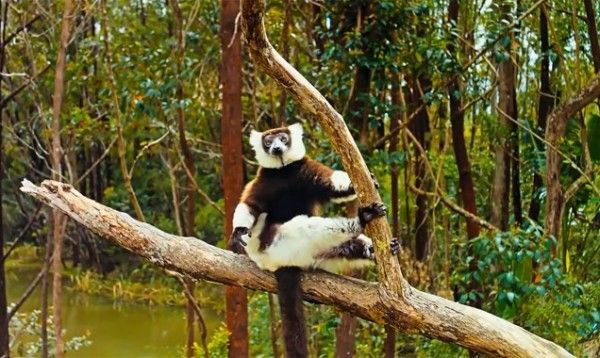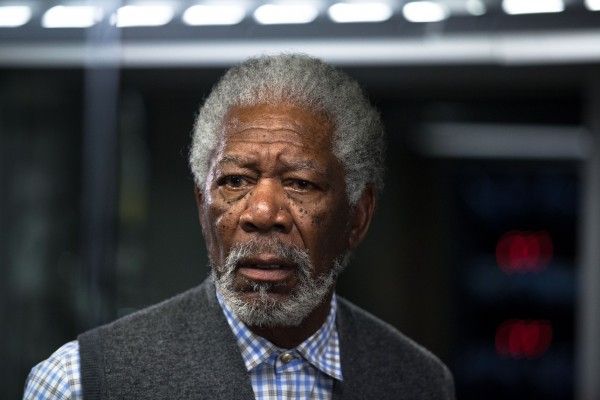From filmmakers David Douglas and Drew Fellman, the IMAX 3D documentary Island of Lemurs: Madagascar tells the incredible true story of the strange and unusual creature known as the lemur. Millions of years ago, lemurs arrived in Madagascar, where they have since evolved into hundreds of diverse species, some as large as a gorilla and some as small as a mouse, but are now highly endangered.
During a conference at the film’s press day, Academy Award winner Morgan Freeman, who narrates the film, talked about why he wanted to get involved with this project, why lemurs are terrific little creatures, that he usually gets to see some footage so that he knows what he’s talking about during the narration, and the educational value of film and television. He also talked about his upcoming love story with Diane Keaton, called Life Itself, and how he’d like to make a film with his production company that wins a Best Picture award. Check out our Morgan Freeman interview after the jump.
Question: Did you already have an interest in lemurs before they approached you about this?
MORGAN FREEMAN: No, they just called upon me to do the narration for this movie about lemurs in Madagascar. They said, “We did very well with Born to Be Wild, so if you have a mind to do it, we would be happy to have you again.” And it was IMAX and Warner Bros., and all the people I like, anyway. And if we’re going to be doing something that might give some attention and consideration to the other life forms on our planet, I’m happy to do it. It’s an obligation.
What is it about lemurs that endears them to you?
FREEMAN: I don’t know lemurs. However, I have a friend who has a place in the Caribbean and he raises them. So, on a visit to his place about a year ago or more, I was introduced to them, up close and personal. They’re obviously in a little bit of trouble, and he’s doing what he can to help rejuvenate their population. So, I got a little bit of history about them, but not nearly what I got from doing this narration. They’re terrific little creatures. We are turning everything on this planet into food for humans. We’ll eat it and, if we can’t eat it, we’ll kill it and take its place and just move it out of the way. The amazing thing about Madagascar is that there were no humans there when the lemurs got there, so they flourished. Life does, without us.
So, you’ve never been to Madagascar?
FREEMAN: No, I haven’t. There are so many places that I’ve never been.
Does your involvement with these films help get them made?
FREEMAN: Yes and no. If I don’t do it, someone else will, and I’m a little reticent to say that they’ll do it just as well. There are a lot of us who do this kind of work, and do it quite well. So, yes, it comes as well as it does because I do it, but it would come out that good, if someone else did it.
What is your narration process like?
FREEMAN: I get the script and read the script. Generally, there is footage that I get to see, so that I know what we’re talking about. And then, it’s just a matter of sitting in front of a microphone and reading. I have these incredible pipes, so all I have to do is sit there and use them. It’s no big deal. I can’t take credit for someone else’s writing. So, there is also that to be considered, always.
You’ve now narrated many great and educational documentaries, both on film and for television. What is it that you love about the art form of documentaries, and the educational value of film and television?
FREEMAN: I think the educational value is what comes first. I’ve always thought that the most effective tools we have for disseminating information, i.e. education, is television and film. People are glued to television. We can’t get children out into the park. So, we have to find the right stuff to present to them, if they are going to be watching television. I have this belief in disseminating useful information concerning the planet and the diverse biology of it, and I’ve just dedicated myself to being available for anything that helps that along. The art of documentaries, I don’t know anything about. But if somebody wants to do one about a subject that I’m interested in, then I’m available.
Since you’ve narrated so many nature films and science specials, if you weren’t acting, could you see yourself working with animals or having a career in the science field?
FREEMAN: I think you have to be left-brained, to a certain extent, to understand science. I can talk about it, but I can’t do it. I was a B student in math, simply because my teachers liked me, as an actor. It’s true. If I wasn’t acting, I have no clue what I’d be doing ‘cause I have no other talent.
What’s next for you, acting wise?
FREEMAN: I have Transcendence. I also did a wonderful little movie (Life Itself) with Diane Keaton, that’s a human interest love story about an old couple. It takes place over a weekend in their lives.
What’s next on your bucket list?
FREEMAN: I have a film company, and I want to make a film that gets a Best Picture award from somebody.
Island of Lemurs: Madagascar opens in theaters on April 4th.




